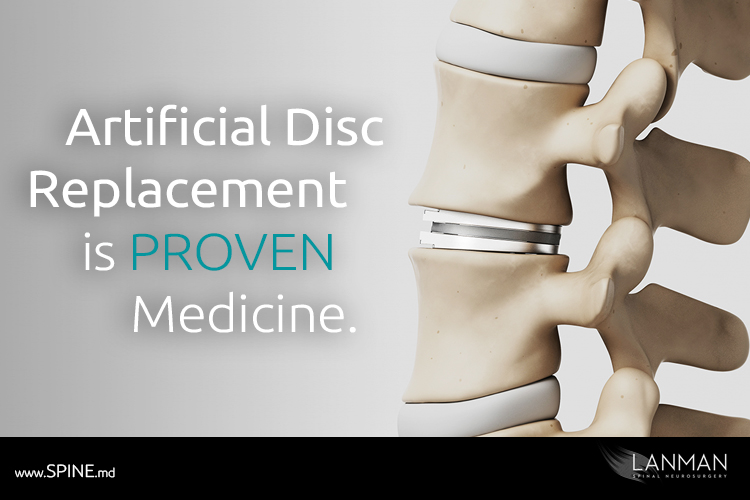When we search for disease before it occurs, we have more options for cures and solutions.
As a clinical researcher, I am advancing surgical methodology and technology for artificial disc replacement surgery. This one medical development not only brings a cure to patients suffering from chronic neck and back pain caused by degenerative disc disease and disc herniations, but it also preserves full mobility and the natural flexibility of the spine.
I am also on the leading edge of the development of restorative motion surgery. Former spinal fusion patients may now opt to replace their fusions with artificial discs. It is an ‘off-label’ procedure. That means that although the FDA did not consider it in their evaluation, they allow it for physicians, such as myself, who have the clinical wherewithal to offer treatment options to their patients.
For nearly 30 years at my practice in Beverly Hills, CA, I have dedicated myself to help my patients recover from spinal disorders. When we’re dealing with back and neck pain, we want to retain as much of our natural mobility as possible. And sometimes all we need to do to achieve the best results is to practice a little common sense. Take for example that many factors affect our spine health, not least of which includes our habits, accidents, and aging. I consider those factors whenever I offer treatment solutions. I may delay surgery for months or even years. I will prescribe fitness and physical therapy, nutrition, and hormone programs. I may suggest minimally invasive outpatient procedures to relieve stenosis that is causing my patient pain.
But I also plan and strategize treatment with my patients. I’ll work around their lives and help them anticipate problems and decide when to act on an invasive procedure such as artificial disc replacement. In short, I commit the heresy of preventative medicine regularly. And I do so to ensure that my patients have the highest quality of life possible.
I believe this is my duty as a physician.
I believe this is what I have to help my patients do better than heal. With a thoroughly planned spine health program, my patients live a life uninterrupted by the surprise of multiple, serial invasive surgeries. Most importantly, they retain full natural spinal movement with active and pain-free lifestyles without the need for pain medication.
My “heresy” brings me also to advocate asymptomatic disease screening for patients who want to know everything about their health. I believe that consumer-directed use of CT scanning technology for asymptomatic disease screening can save lives of thousands of people. So-called silent killers such as aneurysms, cancers, heart attacks, and strokes are among the primary drivers of rising healthcare cost. A single CT scan can uncover many of the symptoms long before they manifest into noticeable problems.
Asymptomatic disease screening means that we examine the body to find diseases before they have a chance to produce symptoms. In essence, we are conducting an intensive medical survey for illness in otherwise healthy people.
The tools include “computerized tomography scanning,” or “CT” scanning, which is a highly evolved low-dose, low-energy x-ray system that can record thousands of images and reconstruct them into a 3-dimensional picture. I’ve used CT scans for many years to help me diagnose spinal disorders and to help plan my patient’s treatment. But scans have also helped some patients discover aneurysms, pre-cancerous tumors, and cysts. One patient with a lumbar scan found polyps in his colon. Another was alerted to high levels of calcium deposits in the arteries of her heart.
The current medical model is inadequate. Why do we have to wait until the patient complains about severe pain before we act? And what about aneurysms and certain cancers that may manifest long after significant damage has occurred? One CT scan can help me detect an emerging herniation of a disc well before the point where a patient experiences pain or nerve loss. It can do the same for other diseases.
One patient told me that her CT scan gave her the “power of knowing.” She knew what was going on in her body, and she could plan accordingly and prevent a disease from causing more considerable problems. It sounds quite a bit like how we become greater than better.







